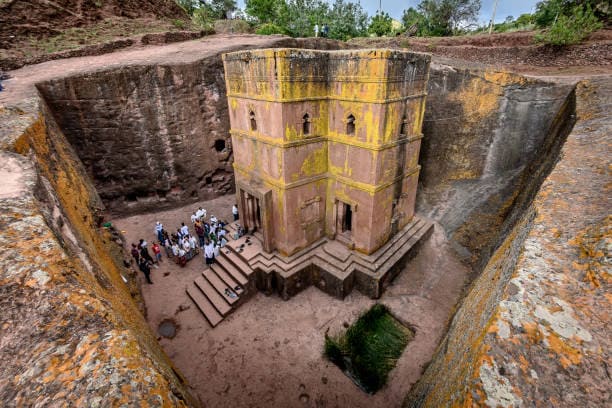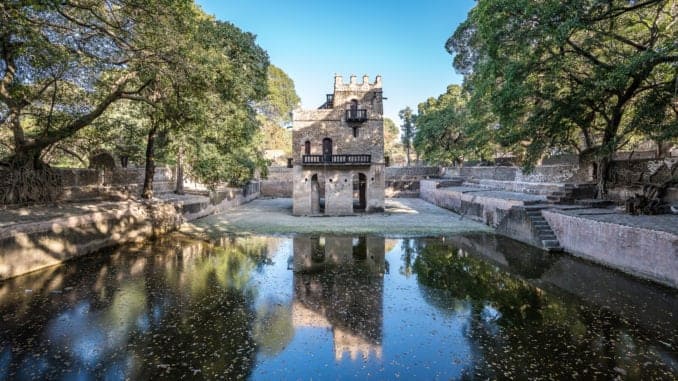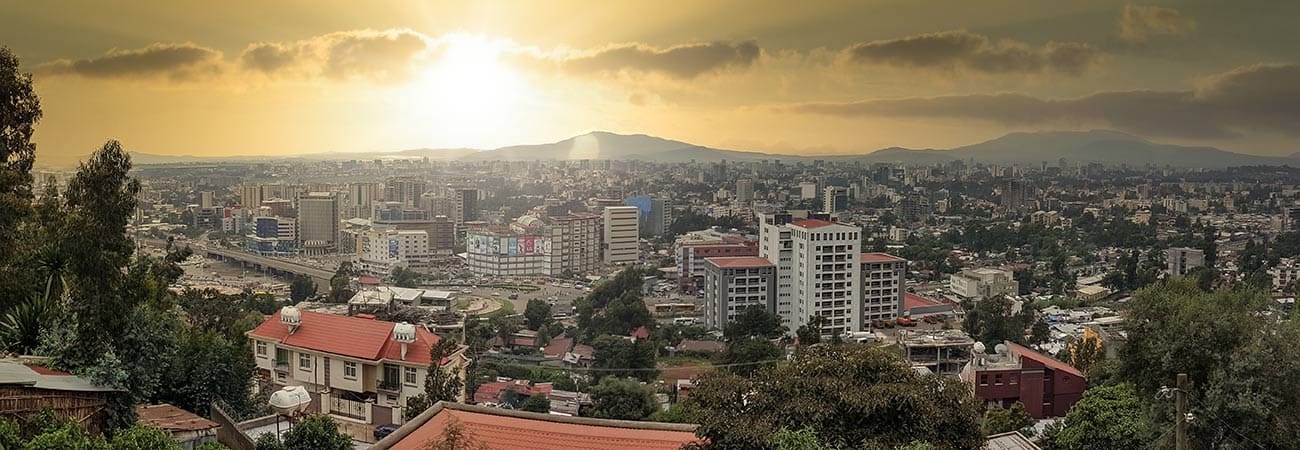Ethiopia Tourism offers a gateway to an extraordinary journey through one of Africa’s most historically rich and culturally diverse countries. Often overlooked in favor of more widely known destinations, Ethiopia stands as a testament to Africa’s profound heritage, brimming with ancient history, breathtaking landscapes, and vibrant traditions. This article explores Ethiopia Tourism in 2024, delving into its unique attractions, from the awe-inspiring Rift Valley and ancient ruins to its distinct cultural practices and unspoiled natural beauty. Whether you’re drawn to its historic significance or its unexplored beauty, Ethiopia promises an enriching travel experience that goes beyond the conventional.

General Information
Ethiopia, an ancient nation with a deep-rooted history, boasts unique characteristics that distinguish it from many other destinations. Known for its classical African landscapes and its own written script, Ethiopia is one of the world’s oldest countries. Remarkably, it has never been colonized, except for a brief Italian occupation during World War II. Its Rift Valley is renowned as the “Cradle of Humanity,” where fossils like ‘Lucy’ and ‘Homo Ramidus Afarensis’ provide crucial insights into early human history. Despite its significance, Ethiopia remains relatively unknown as a tourist destination, which means travelers can enjoy its wonders without the crowds.
- Capital: Addis Ababa
- Currency: Ethiopian Birr (ETB)
- Area: 1,127,127 km²
- Population: Approximately 109.2 million (2018)
- Languages: Officially Amharic, with Oromo, Tigrinya, Guaragigna, Somali, and Arabic also spoken; English is widely taught.
- Religion: Ethiopian Orthodox, Protestantism, Catholicism, Islam, Judaism, Animism, and Baha’i.
- Electricity: 220V, 50Hz (European & Italian plugs)
Festivals and Holidays
The Ethiopian calendar, unique with its 13 months, reflects the country’s distinct cultural rhythm. Ethiopian New Year, or Enkutatash, is celebrated on September 11th or 12th, marking the end of the rainy season and the beginning of clear skies. During this festive time, the countryside transforms with blooming yellow daisies known as adey abeba.
Seasons and Climate
Ethiopia’s climate varies significantly throughout the year, impacting travel experiences:
- Dry Season (“Barka”): From October to May, the weather is generally dry and hot, with temperatures ranging from 20 to 35 degrees Celsius (68 to 95 degrees Fahrenheit). This season is ideal for sightseeing and outdoor activities due to its cooler and drier conditions.
- Rainy Season (“Belg”): Running from June to September, this period is characterized by wet and humid conditions, with temperatures similarly ranging from 20 to 35 degrees Celsius (68 to 95 degrees Fahrenheit). While it’s a time for lush greenery and blooming wildflowers, be cautious of potentially impassable roads.
Travel Resources
For planning your trip, a range of resources are available:
- Accommodation: Platforms like Booking.com and DiscoverCars.com provide options from budget to luxury stays.
- Tours and Experiences: Explore group tours, attractions, and bespoke experiences through GAdventures, GetYourGuide, and Manawa.
- Visa and Insurance: Consult iVisa and SafetyWing for essential visa and insurance information.
Regions and Highlights
Addis Ababa: The capital city offers a wealth of attractions including the National Museum of Ethiopia, where you can explore the country’s history, and Mt. Entoto for panoramic city views.
Awasha National Park: Known for its hot springs and diverse wildlife such as gazelles and hyenas, this park is a natural treasure.
Askum: A UNESCO World Heritage Site, Askum is renowned for its underground tombs and ancient palace ruins.
Erta Ale: This active volcano in northeastern Ethiopia provides a thrilling adventure for those willing to trek to its lava-filled crater.
Lake Tana: Ethiopia’s largest lake, Lake Tana, is a serene and historically significant site, perfect for tranquil exploration.
Fasil Ghebii: Explore the ruins of this 16th-century city, another remarkable UNESCO World Heritage Site.
Scenery and Landscapes
Ethiopia’s landscapes are incredibly diverse, ranging from the lush highlands to the arid Danakil Depression, which is Africa’s lowest point and hosts a quarter of the continent’s active volcanoes. The Simien Mountains and Bale Mountains, with peaks exceeding 4,000 meters, provide breathtaking scenery and are ideal for hiking and trekking.

Historical and Cultural Attractions
The Historical Route in the Tigray and Amhara regions is famed for its 12th-century Christian rock churches, island monasteries, and 17th-century castles. The spiritual legacy of the Solomonic dynasty, which ruled from the 10th century until 1974, and the influence of figures like Haile Selassie contribute significantly to Ethiopia’s cultural tapestry.
Wildlife
Ethiopia is home to unique wildlife, including the critically endangered Simien wolf and the Gelada monkey, known for its grazing behavior. Bird enthusiasts will delight in spotting endemic species such as the Blue-winged goose and Streseman’s bush-crow.
Ethnic Diversity
With approximately 80 ethnic groups, Ethiopia’s cultural landscape is as varied as its geography. The Oromo, Amhara, Somali, and Tigrean groups are the most populous, while the tribes in the Southern Nations, Nationalities, and People’s Region, such as the Konso and South Omo, offer a glimpse into traditional ways of life.
What to Eat
Ethiopia Tourism: Ethiopian cuisine is a flavorful journey:
- Injera: A sourdough flatbread served with various stews and vegetables.
- Tibs: Meat and vegetables seasoned with spices.
- Doro Wat: A spicy chicken stew and a national dish.
- Kitfo: Raw minced meat seasoned with spices.
- Shiro: A thick stew made from chickpeas or lentils.
- Tibs Firfir: Sautéed injera mixed with spiced meat or vegetables.
- Kategna: Injera with spicy butter or berbere.
- Traditional Coffee Ceremony: Experience the ritual of roasting, brewing, and serving coffee, integral to Ethiopian culture.
Where to Stay
Addis Ababa: Options range from budget-friendly Weygoss Guest House to luxurious Sheraton Addis, a Luxury Collection Hotel.
Lalibela: Choices include the budget Top Twelve Hotel Lalibela, mid-range Maribela Hotel, and luxury Cliff Edge Hotel.
For the best value, consider booking in advance or during the offseason to secure the best rates.

Conclusion
Ethiopia Tourism presents an unparalleled opportunity to discover a country steeped in ancient history and brimming with natural splendor. As you journey through its diverse landscapes, from the rugged Simien Mountains to the serene Lake Tana, you will encounter a blend of historical marvels and vibrant cultures that make Ethiopia a truly unique destination. The richness of Ethiopia Tourism lies not only in its iconic landmarks and wildlife but also in its enduring traditions and welcoming spirit. For those seeking an immersive and transformative travel experience, Ethiopia stands out as a remarkable choice in 2024, promising memories that will last a lifetime.

